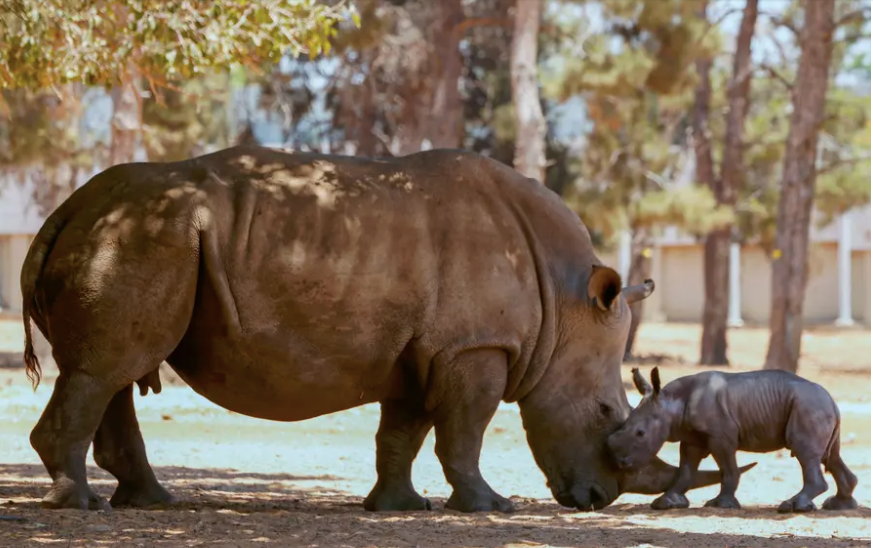Boris’ Cop26 “cash” must deliver conservation in real places
As world leaders prepare for COP26 in Glasgow, Douglas Flynn explains why international commitments must result in on-the-ground financing of critical ecosystems

Your support helps us to tell the story
From reproductive rights to climate change to Big Tech, The Independent is on the ground when the story is developing. Whether it's investigating the financials of Elon Musk's pro-Trump PAC or producing our latest documentary, 'The A Word', which shines a light on the American women fighting for reproductive rights, we know how important it is to parse out the facts from the messaging.
At such a critical moment in US history, we need reporters on the ground. Your donation allows us to keep sending journalists to speak to both sides of the story.
The Independent is trusted by Americans across the entire political spectrum. And unlike many other quality news outlets, we choose not to lock Americans out of our reporting and analysis with paywalls. We believe quality journalism should be available to everyone, paid for by those who can afford it.
Your support makes all the difference.It took Jeff Bezos a trip to space to bring home a stark truth: nature, earth’s “life support system” is not vast and limitless, but “fragile” and “finite”.
On his return to earth, he committed $1bn to conservation initiatives in specific countries and landscapes. Other philanthropists joined him, announcing a landmark total of $5bn last month.
These commitments are important not just for their size, but for the reality they reflect: conservation action does not happen at a scale “the size of Wales” or at the rate of “a football field every six seconds”.
It happens at the length of a human stride. The width of a field classroom. The speed at which human hands can clear creepers from a jungle path. The years it takes to build trust with local leaders.
Ahead of the critical climate conference in Glasgow (“COP26”), Boris Johnson and fellow world leaders have not had the privilege of looking back at earth from space. But they do have the opportunity to bring the “forgotten solution” - nature - into the heart of this decade’s action on climate. To begin to close the $700bn-per-year nature financing gap that is resulting in humanity’s life support system crumble away beneath our weight.
But they also have a much more practical challenge: to ensure that pledges for nature move from abstract, aggregated promises at the global level to direct funding of conservation action in specific, real-world places.
International commitments are a means, not the end. It is what happens afterwards - if, when and where money ends up flowing - that will ultimately determine the success or failure of next month’s negotiations.
Here, philanthropy can provide inspiration for policymakers. You may have never heard of Luengue-Luiana and Mavinga National Parks, but these are examples of the ground-level sites at the frontline of humanity’s climate fight. Located in southern Angola, and ravaged by three decades of civil war, these vast parks have, until now, been ignored or invisible to international finance.
But last month, the NGO African Parks signed a historic Memorandum of Understanding with the Government of Angola to jointly manage them - the largest contiguous landscape with National Park status on the African continent.
This is one of the most significant climate investments you’ve never heard of. These landscapes store several billion tonnes of greenhouse gases, locked up in their forests, woodlands, swamps and soils. Their functioning provides food, fibre and predictable rainfall for hundreds of thousands of people in the region. They safeguard the watersheds of some of the most important and iconic freshwater systems on the planet - the Zambezi River and Okavango Delta.
Historically, conservation has suffered from the perception that it was a discipline focused on species other than ourselves. How wrong that perception was. Conservation investments are not about saving the iconic species of children’s storybooks: they are an investment in clean water, carbon storage, carbon sequestration, agricultural productivity, climate stabilisation, flood protection, political stability and human wellbeing. Put simply, they are an investment in ourselves.
World leaders, particularly from developed countries, can take inspiration from Angola, from African Parks and from the Bezos-inspired philanthropic contributions. We live on a finite, fragile and resource-constrained planet; one on which we can no longer afford to think that our conservation assets will take care of themselves.
Let us zoom in from global-level rhetoric to pixel-scale action and investment in the sweat and dust of the planet’s network of extraordinary natural climate assets.
And let us make this the COP that climate finance was channelled to conservation in real places.
Douglas Flynn is Biodiversity Lead at SYSTEMIQ
Join our commenting forum
Join thought-provoking conversations, follow other Independent readers and see their replies
Comments